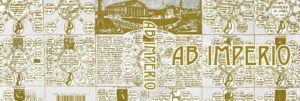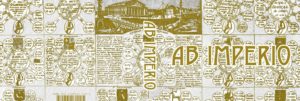Yevgeny Yevtushenko
In 2017, April 1 stopped being the day of humor for all those who understand Russian poetry. That day was marked by the passing of Yevgeny Yevtushenko, who died in the United States, surrounded by his family, close friends, and US doctors. He was the last poet of the golden years of Russian poetry of the second half of the 20th century. The last of the Mohicans; the last of the rulers of minds and feelings. He was one of the five iconic young poets who melted the Communist frost of the Stalin era with the thawing force of their hearts’ poetry. They were Robert Rozhdestvensky, Andrei Voznesensky, Joseph Brodsky, Bella Akhmadulina and–the last one to leave us–Yevgeny Yevtushenko. They liked and disliked each other at the same time. As a matter of taste, some of us favored one more than another, but the fact remains that they have all changed our lives.
It is possible that Yevgeny Yevtushenko made us discover more than the other four did–not only because he outlived them, but also thanks to the complexity of his talent and his life philosophy. He has taught many of us to think and act freely. His poem Babi Yar shattered the thick silence and revealed the notion of the Holocaust to the Soviet people. He was the one who did this! He did this although he was a Baltic (Latvian) German by descent–not a Jew. He did this because, stricken by an entire people’s tragedy, he could not remain silent. He did this with such pain and passion that the penetrating force of his poem set to music by the great D. Shostakovich made tremble the walls of the Pillar Hall of the House of the Unions that still remembered the “grand farewell” to the Communist leader. The verses and the music produced such a powerful effect that an attempt was made to silence them–but art, talent, spirit, and conscience cannot be silenced. Even though Yevtushenko was forced to join Komsomol construction projects, he has never ceased being a poet. At that time or maybe later, during the disastrous meeting of cultural and arts representatives with the Presidium of the Central Committee of the Communist Party of the Soviet Union led by Nikita Khrushchev, these brilliant verses were born:
Take a look, people,
At this chairass mediocrity
Casually sprawling
Its roots across the seats!
Yevgeny Yevtushenko always fought against mediocrity. He fought by means of his poetry, by his life without bans, his legendary shirts and jackets that shattered the polished insipidity of our life. And though it often seemed like he was writing not about us, but about his long-distance trips, such verses as
To speak the truth for just three minutes
For just three minutes!
And let them kill me afterwards!
were about us, as well as about him and his friends. Needless to say, everyone has his or her favorite verses from Yevtushenko, something they can especially relate to. Some people might not have any, or at least think they don’t, and everyone remembers the lines from his songs like, for example:
Deliver you
from being kicked
With heavy jackboots by your country.
Deliver you
your wife to be quite thick
With you when you’re in quandary
Or take the extensive series of lyric songs that sing about love with piercing candor and affection. Suffice to recall the amazing cycle of poems set to music by the most famous Soviet and post-Soviet Latvian composer and pianist, Raimonds Pauls. This was, however, the final series, and before it there were others that were widely known for decades and were set to music by the immense country’s best-known and most loved composers.
Yevgeny Yevtushenko’s work was not limited to poetry. Together with his now-departed friends, he authored theater plays and films, such as “Under the Skin of the Statue of Liberty” that, unfortunately, ran for a very short time at Yuri Lyubimov’s legendary Taganka Theater in the early 1970s before being removed from the repertoire not to make it into a movie, alas, but because it was banned for its overly audacious parallels between seemingly Western, American life and our own Soviet one. For the metaphor of policemen wearing then-exotic “astronaut” helmets and brandishing batons, separating the public from those in the limelight. Unfortunately, only a few actors who performed in this play still tread the boards, since many have left the stage. I am certain, however, that were this play to run again today, it would be just as successful and constantly sold-out.
Savva Kulish, a Soviet film director and screenwriter, in whose biopic “Take-Off” Yevgeny Yevtushenko played the leading role as the Russian rocket scientist Tsiolkovsky bursting to fly into space, has long passed away. It is a shame that Yevtushenko’s poetic films “Stalin’s Funeral” and “Kindergarten,” which the poet directed himself, are hardly ever screened. The acuteness of feelings and the significance of emotional experiences in these films are genuine and ever so relevant in a country still dreaming of the greatness of a totalitarian regime.
I cannot say for sure, but I believe that Yevgeny Yevtushenko delivered an absolute record amount of poetry among all poets who have written poetry in the Russian language. That, however, was not enough for him. He created a unique anthology of Russian poetry where, alongside iconic names and verses, he discovered and remembered many poets who shot past like comets or sparks only to fade away and vanish. Not only did he find and publish their poems–many of them for the first time ever–but he also read their poetry on his show on the Kultura radio station. He read out these authors and felt them deeply. He allowed other people to discover the verses that he himself sincerely admired and called brilliant.
Yevgeny Yevtushenko was a poet, a director, a painter, a gallerist, a politician, a citizen, a Human Being!
As a member of the USSR Congress of People’s Deputies, he cared not about his personal welfare, which is so very common, but about those who were humiliated in their own Motherland. He tried to infect us with his freedom, the freedom of a sensible man–not the senseless freedom of permissiveness. He broadened our horizons of a free perception of this world. Presidents and leaders, prominent politicians and public figures from around the world never refused to meet with him because they felt, they realized that he was their equal. He was a true Ambassador of Russian culture. He has done more for Russian culture than all the ministers and heads of culture departments that came and went over the course of his life. Sadly, their efforts contributed to the shortening of his and many of his brothers in arts’ lives. What can one do? Sadly, “there are no prophets in one’s own Motherland.”
He is gone… He is being mourned in remotes places of the American Midwest, in the streets of the cherished, beloved Peredelkino, on the beaches and in the sand dunes of Yurmala, under the scorching sun of Havana and Sierra Maestra, on the abandoned Zima train station, of course, and on Paris’s Champs-Élysées. Alas, he is gone. He will never again stand under the statue of Mayakovsky on Moscow’s Triumfalnaya Square; he will never again come into an arena or a stadium, but he will be with us for as long as we can read and remember. Thus, I hope that one day we will all realize the truth of what he recently realized and wrote:
Wars are ended
Not by a gesture from Themis
But when,
Forgetting their grievances,
Invalids, cut in half by war,
Kill the war in themselves!
Indeed he perished as a warrior. He remained on the front line until his very last breath. On the front line of the fight for a Free Man–the Man he was and the Man he died.
P.S. Dear Yevgeny Alexandrovich, forgive me for failing to convince Russian TV channels to screen our film Football USSR – FRG 1955 but I promise that I will keep trying. Especially considering that people watched it in Moscow’s Dom Kino theater, as well as in Germany, Poland, Latvia, the United States, Canada, and Ukraine. They watched it and applauded you! I will keep trying… Forgive me.
Grigory Amnuel, who was lucky to meet you repeatedly over the years, to get acquainted with your work, and even to make a film with you.
4/1/2017 New York, nighttime




